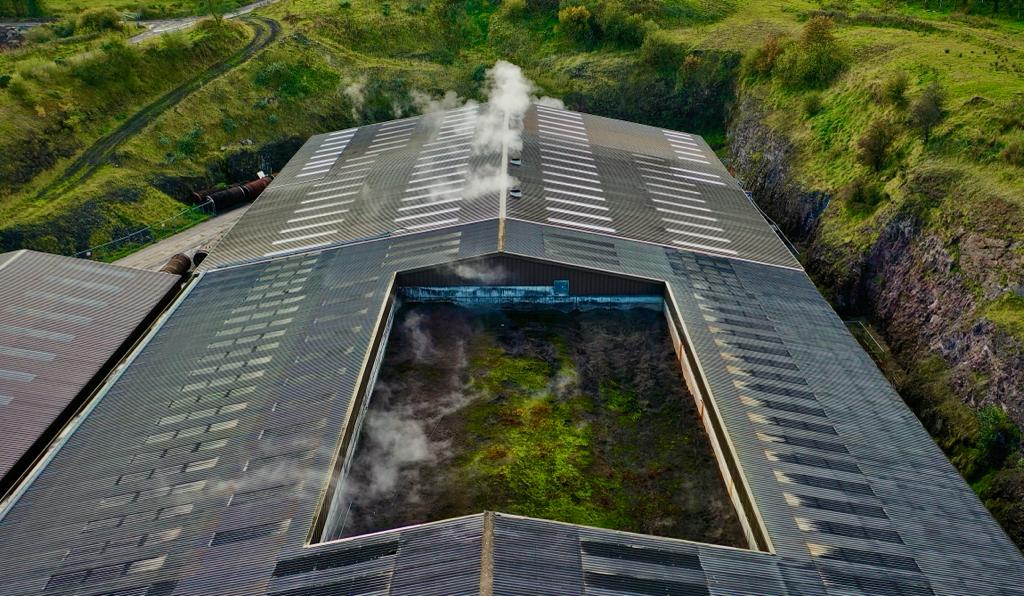FOLLOWING a number of readers contacting the Andersonstown News with concerns regarding an odour which they believe to be coming from the Natural World Products site on the Glenside Road, we were invited to tour the facility with NWPs CEO Colm Warren.
Natural World Products are the leading organics recycler in Ireland and receive food and garden waste from local councils and commercial customers. The natural waste is then converted into quality organic and peat-free compost and soil conditioner.
The compost from the site has been used in a number of projects including Diarmuid Gavin’s Clockwork Garden in Antrim Castle Gardens, the grounds of Hillsborough Castle and Royal Portrush Golf Club. More locally, the compost is also supplied to projects including Colin Glen Allotments and Ballysillan Allotments.
“NWP was originally a family-owned business started by Brendan Woods in Keady, County Armagh. I came on around nine years ago as the business was transitioning between first- and second-generation ownership,” Colm said.
“I had previously worked as a PWC trained chartered accountant and would have done a lot of work advising government on infrastructure projects.
“With regulations coming in from the government to drive innovation in the sector including the introduction of a Land Tax Escalator, which over time was making it more difficult to send stuff to landfill and they were looking at different ways to avoid sending material to landfill.
“Over time a lot of the family left the business and the last member of the family left in 2018. Since then we have been attracting in foreign investment to corporatize and professionalise the business.”
RECYCLED: Brown bin waste is taken to the site and turned into compost in a 12 week process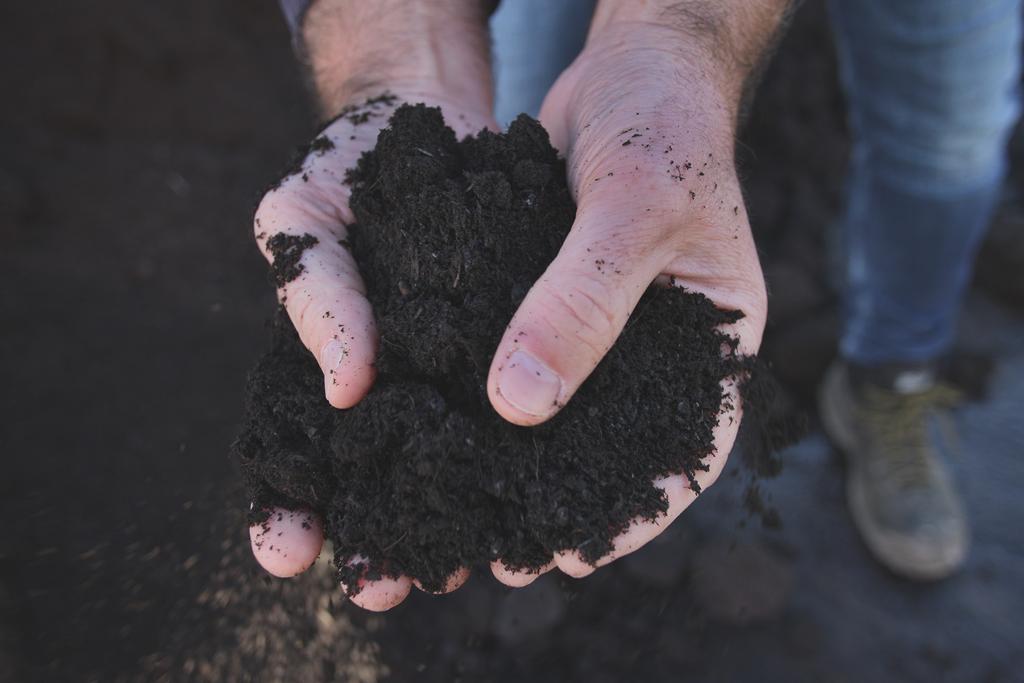
Natural World Products’ Glenside Road site opened in 2009 and has continued to grow over the last 13 years. The company have plans to bring more of the site, which spans more than 100 acres, into public use including the development of an education centre at the site. This includes replanting their grounds with native trees.
Describing the work that goes on at the site, Colm said: “We are making high quality, organic compost and soil conditioner in its truest form. That goes back into the farmland. There is a big carbon sequestration benefit too.
“Most farm practices in Ireland revolve around methine-based farming practices. What we are trying to encourage is movement towards more arable forms of growing for vegetables and growing food as close to the consumer as possible.
“Ireland has a soil health crisis at the minute because we have stripped the nutrients out of the soil after many years of intensive farming.
“For every tonne of the type of material such as ours which goes into peat-based compost bags, it saves about a tonne of CO2 going into the atmosphere.”
INSIDE: Our reporter James McCarthy was shown around the Natural World Products site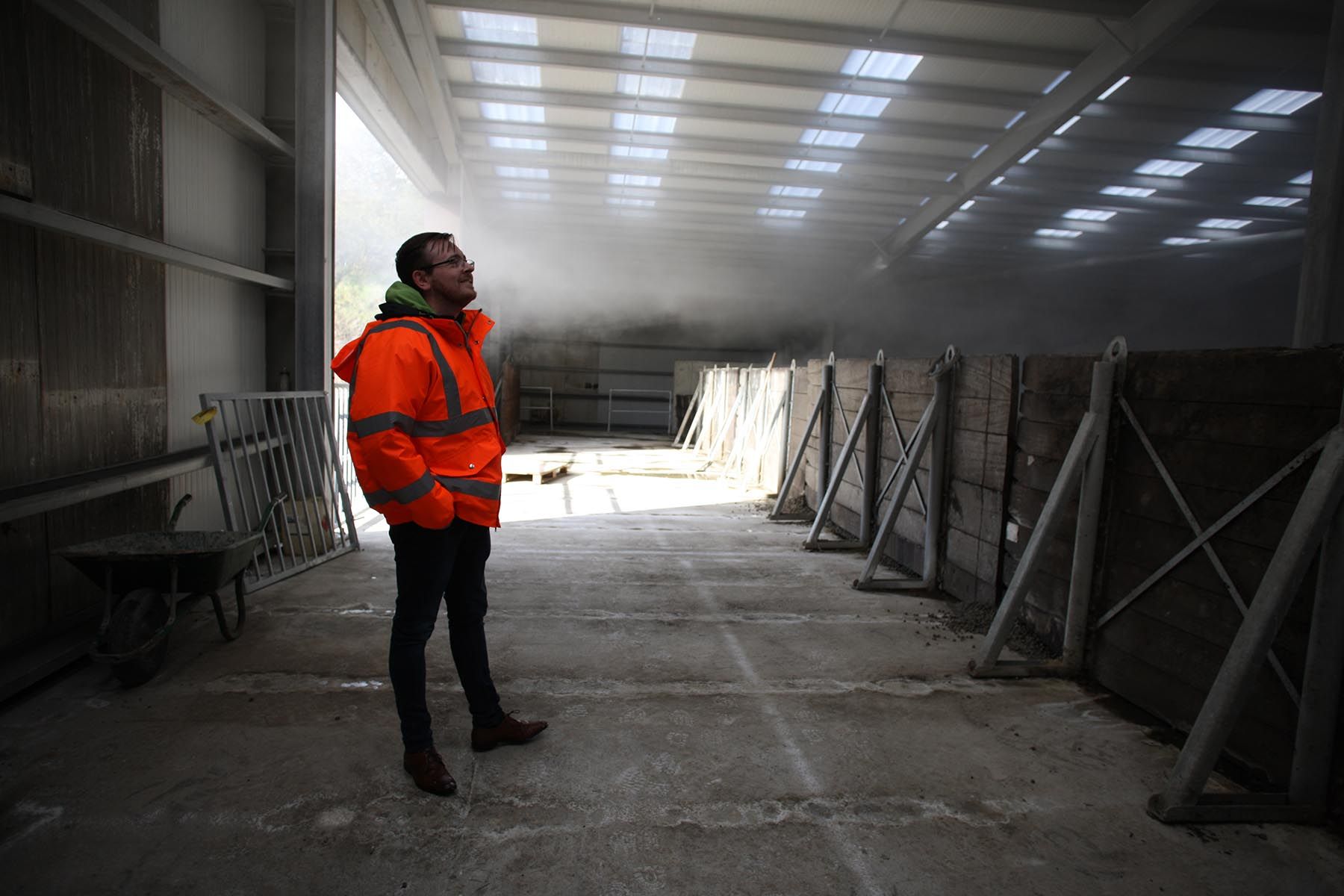
Discussing issues with odour that might be emanating from the site, Colm said he hopes that Natural World Products are not putting their head in the sand and denying that there is a problem.
“There have been issues on the back of Mullaghglass in terms of odour and that is something that we are trying to address.
“Realistically, the odour from our site isn’t particularly bad. What you smell is composting and it is very difficult not to have an odour.
“We have installed biofilters, extraction fans and roof fans to deal with the odour and we are in the process of planning to install a 40 foot stack which we hope assists in dealing with the smell.
“The reason that we haven’t done that historically is that we haven’t been sure if it would redirect the smell elsewhere.”
FILTER: One of the massive biofilters used to prevent odour from the site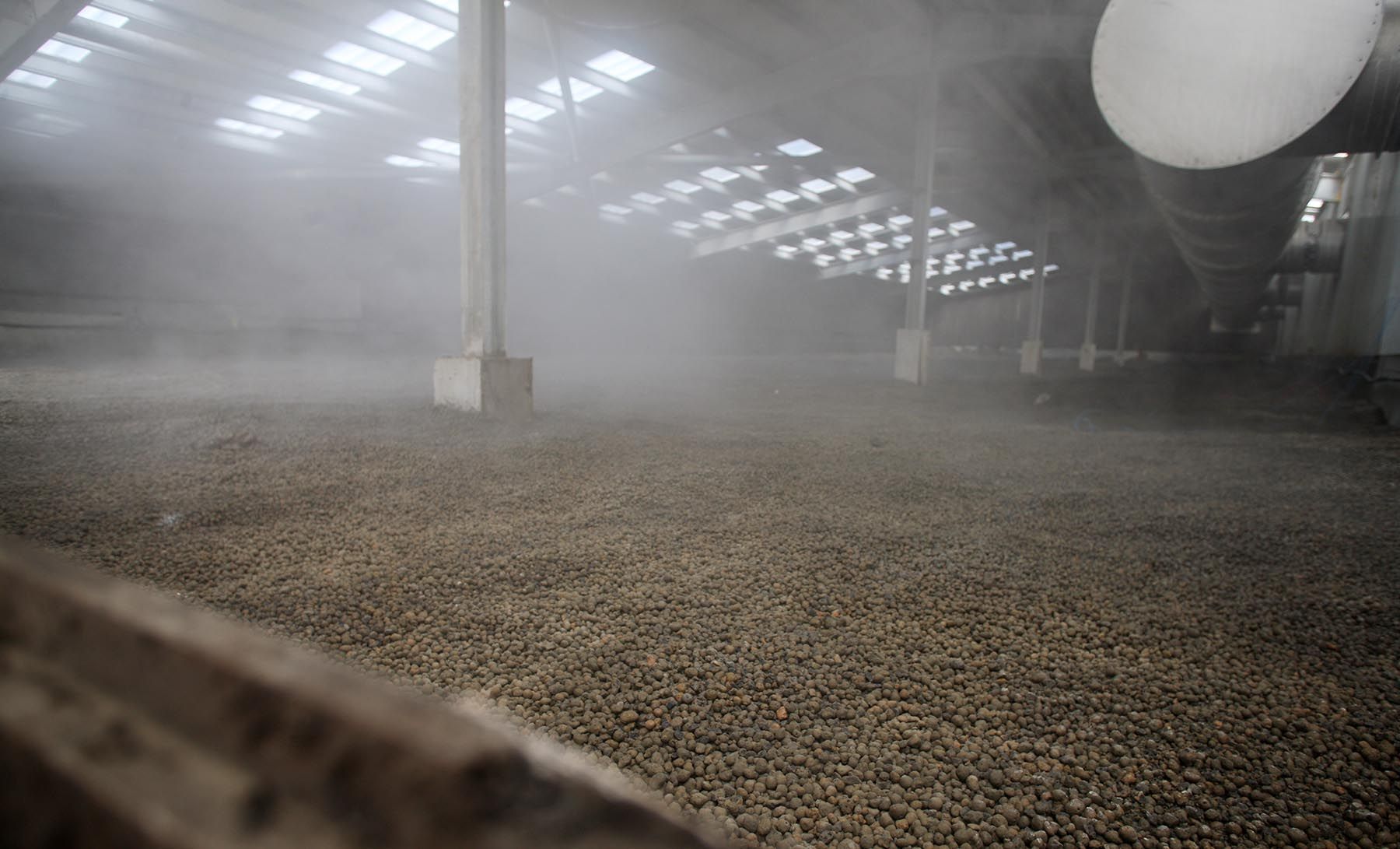
Colm pointed to a previous incident with a fire in Duncrue Industrial Estate at an animal feed storage facility. He said that NWP had been approached to dispose of the waste and were initially reluctant to accept it due to the potential odour it would create.
“We were having these discussions in the winter time and we had agreed that we would take some of it if they could get it to us over the winter when we had the capacity.
“They made a mess of it and by the time we took two or three loads it was the summer and we knew straight away that it would cause an issue so we killed the job and refused to take any more.
“That was around the time that Mullaghglass was a real issue and put us on radars that we weren’t on before. We have just upgraded our facilities here and have been spending millions over the last few years.
“We have added four biofilters and it is now a lot better than it ever was. We are now in the process of carrying out feasibility studies as to what we do next to deal with any potential odours.
“From a regulators perspective, we are not doing anything wrong here and the last thing that we want to do is to be annoying people.
“We had been here since 2009 and had less than a handful of complaints until the Mullaghlass issue arose.
“By and large, I don’t belive that we are a problem but I hope we are not burying our head in the sand.”
Colm said that he believes that quite often, people don’t realise the leading work that they are doing at the site.
When brown bin waste arrives at the site, it takes 12 weeks to be turned into compost by accelerating the natural process using Dutch technology whereby the waste is locked in airtight tunnels and controlling oxygen levels and air flow temperatures so that the bacteria in the waste can break it down.
“The next phase of what we are planning on doing is to take the biomethane and injecting that into the grid so that we are decarbonising the gas network,” he said. “This is quite strategically important, and we have been working closely with the Department for the Economy and DEARA to deliver it.
“In the past we have stayed out of the likes of NIROC scheme because we knew of the problems that it could cause in terms of wet Anaerobic Digestion and the potential for pollution in the waterways.
“A lot of people were jumping on that because there was very lucrative subsidy, but we have been proven right that the negative aspects of that would be too bad.”
SIZE: Natural World Products own over 100 acres of land on the Glenside Road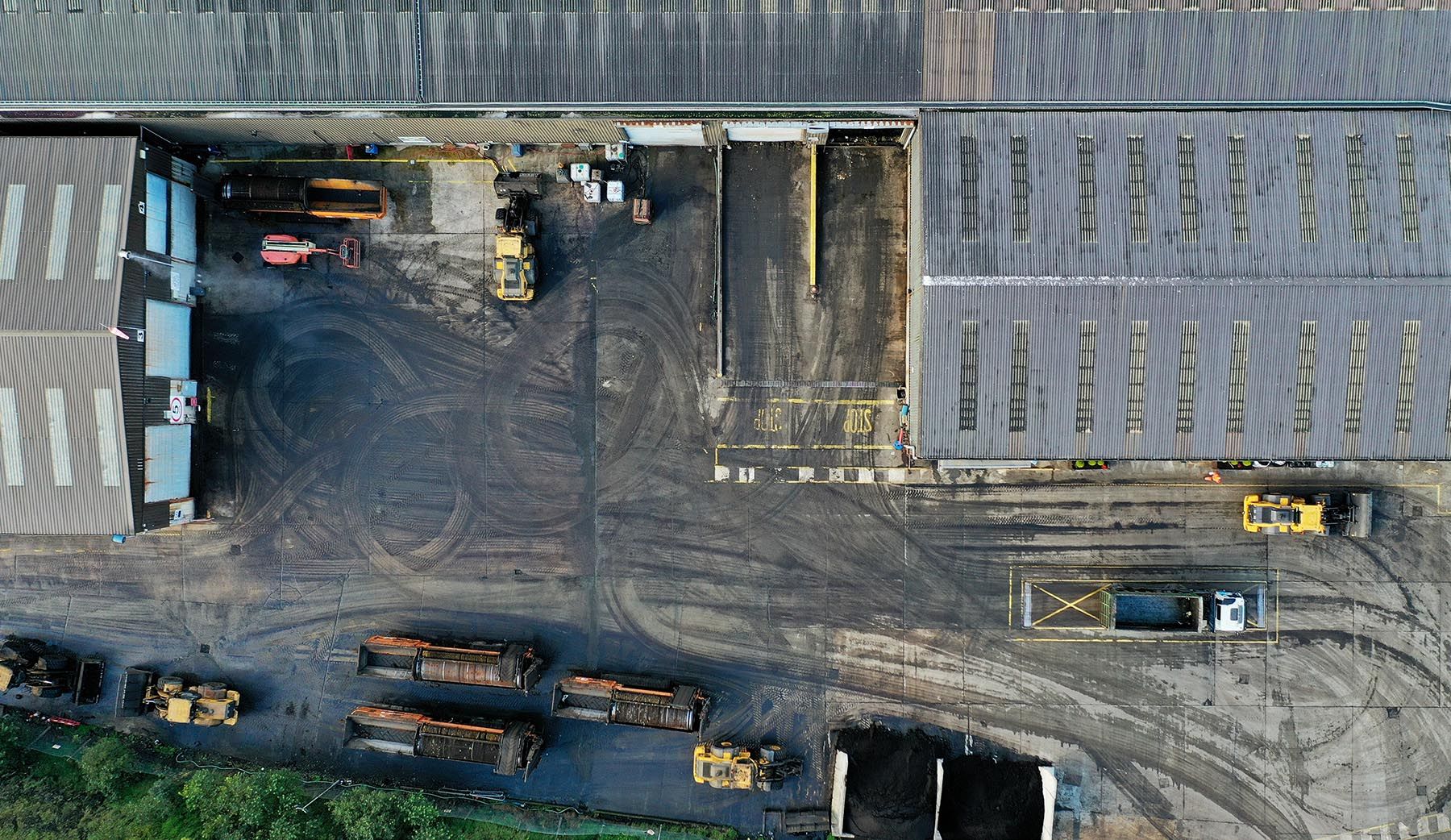
Colm said that he is hoping to develop a world leading example of best practice in dealing with discarded household organics including working to decarbonise the gas network, assisting the transition to better and more sustainable farming practices and replacing peat in horticulture.
In a separate development, Natural World Products have recently tendered for a contract which could see one of their newly built units being turned into a waste transfer station for use by Lisburn City and Castlereagh Council following the closure of Mullaghglass landfill later this year.
If successful, the council's general waste will be taken to the Glenside site before being transported to landfill in larger vehicles.

